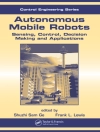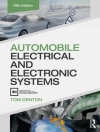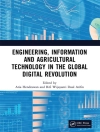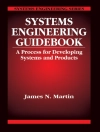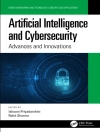- A comprehensive review of both the causes of greenhouse gas emissions from livestock and the range of ways these emissions can be reduced
- Particularly strong focus on the range of nutritional strategies, from forage and silage to feed supplements such as plant bioactive compounds and direct-fed microbials as well as inhibitors and vaccines
- Covers other approaches such as genetics and selection, improved husbandry as well as manure management
Spis treści
Part 1 Analysis
1.Measuring methane emissions from livestock: Trevor Coates, Agriculture and Agri-Food Canada, Canada; and Deli Chen and Mei Bai, University of Melbourne, Australia;
2.Greenhouse gas emissions from livestock production: modelling methods, methane emission factors and mitigation strategies: Donal O’Brien, Environment, Soils and Land Use Department, Teagasc, Ireland; and Laurence Shalloo, Animal and Grassland Research and Innovation Department, Teagasc, Ireland;
Part 2 Breeding, animal husbandry and manure management
3.The contribution of animal breeding to reducing the environmental impact of livestock production: Yvette de Haas, Wageningen University and Research, The Netherlands; Marco C. A. M. Bink, Hendrix Genetics Research, Technology & Services B.V., The Netherlands; Randy Borg, Cobb Europe B.V., The Netherlands; Erwin P. C. Koenen, CRV, The Netherlands; Lisanne M. G. Verschuren, Topigs Norsvin Research Center B.V./Wageningen University and Research, The Netherlands; and Herman Mollenhorst, Wageningen University and Research, The Netherlands;
4.Quantifying the contribution of livestock health issues to the environmental impact of their production systems: Stephen G. Mackenzie, Trinity College Dublin, Ireland; and Ilias Kyriazakis, Queen’s University of Belfast, UK;
5.Sustainable nitrogen management for housed livestock, manure storage and manure processing: Barbara Amon, Leibniz Institute for Agricultural Engineering and Bioeconomy (ATB), Germany and University of Zielona Góra, Poland; Lars Stouman Jensen, University of Copenhagen, Denmark; Karin Groenestein, Wageningen Livestock Research, The Netherlands; and Mark Sutton, UK Centre for Ecology & Hydrology (UKCEH), UK;
6.Developments in anaerobic digestion to optimize the use of livestock manure: Mingxue Gao, Danmeng Wang, Chunlan Mao, Yongzhong Feng, Zhiyuan Zhu, Xiaojiao Wang, Guangxin Ren and Gaihe Yang, Northwest A&F University, China;
Part 3 Nutrition
7.The impact of improving feed efficiency on the environmental impact of livestock production: James K. Drackley, University of Illinois at Urbana-Champaign, USA; and Christopher K. Reynolds, University of Reading, UK;
8.Improving grassland/forage quality and management to reduce livestock greenhouse gas emissions: Michael O’Donovan, Teagasc, Ireland;
9.The use of plant bioactive compounds to reduce greenhouse gas emissions from farmed ruminants: Cécile Martin, Vincent Niderkorn, Gaëlle Maxin, INRAE, France; Jessie Guyader, INRAE-ADM NEOVIA, France; and Maguy Eugène and Diego P. Morgavi, INRAE, France;
10.The use of feed supplements to reduce livestock greenhouse gas emissions: direct-fed microbials: Natasha Doyle, Teagasc Moorepark Food Research Centre, Ireland; Philiswa Mbandlwa, University College Cork, Ireland; Sinead Leahy and Graeme Attwood, Ag Research Limited, New Zealand; Bill Kelly, Ashhurst, New Zealand; Collin Hill and R. Paul Ross, Teagasc Moorepark Food Research Centre and University College Cork, Ireland; and Catherine Stanton, Teagasc Moorepark Food Research Centre, University College Cork and VISTAMILK SFI Centre – Teagasc, Ireland;
11.Modifying the rumen environment to reduce greenhouse gas emissions: Yajing Ban, University of Alberta, Canada; André L. A. Neves, Embrapa Dairy Cattle, Brazilian Agricultural Research Corporation (Embrapa), Brazil; Le Luo Guan, University of Alberta, Canada; and Tim Mc Allister, Lethbridge Research and Development Centre, Agriculture and Agri-Food Canada, Canada;
O autorze
Professor (UZ) Dr Barbara Amon is an Associate Professor for Environmental Engineering and Agricultural Engineering at the University of Zielona Góra, Poland and a Senior Research Scientist and Board Representative for Research at the Leibniz Institute for Agricultural Engineering and Bioeconomy (ATB), Germany. Professor Amon sits on many panels, including the Intergovernmental Panel on Climate Change (IPCC), UNECE, UNEP and the FAO LEAP Partnership.


